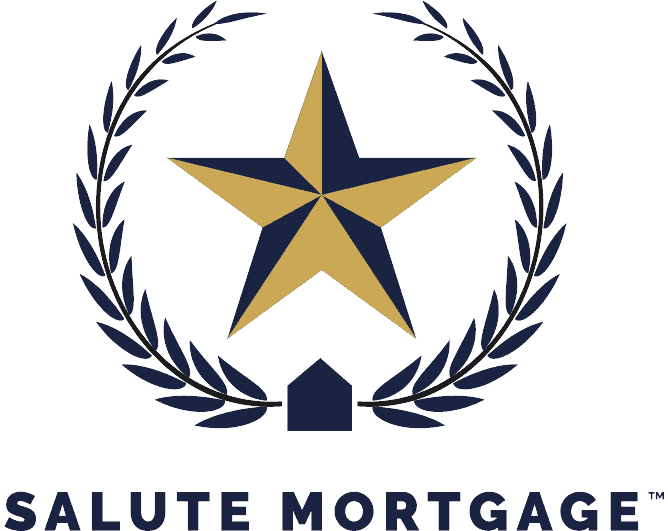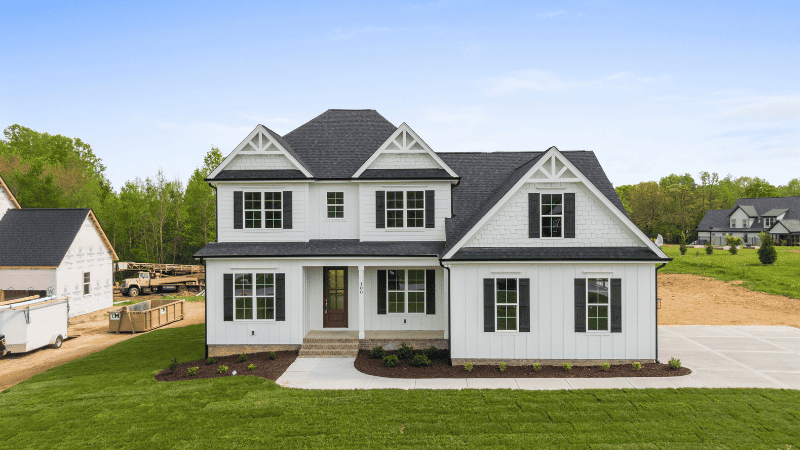Last updated: October 2025
Quick Answer
Good news if you’re using a VA or FHA loan: Your mortgage rate could soon drop—even as conventional rates climb.
Backed by recent federal moves, government-backed loan rates may buck market trends and fall this quarter. Here’s what it means for your next purchase or refinance—and how to act fast if you’re eligible.
Apply for a home loan with Salute Mortgage today.
Why government-backed mortgage rates might drop
FHA and VA rates may drop—even as other mortgage rates rise—thanks to new federal moves designed to expand homeownership access.
The Department of Housing and Urban Development (HUD) and the Department of Veterans Affairs do not set interest rates directly. However, they influence pricing through loan guarantees, reduced lender risk exposure, and streamlined underwriting standards.
When government agencies reinforce these support mechanisms, especially during uncertain economic periods, it often results in lower rates for VA and FHA mortgages compared to conventional options.
Rising Treasury yields often push conventional rates higher. But VA and FHA loans are backed by the government—making them more stable in turbulent markets.
Let’s Build Your Path to Homeownership
At Salute Mortgage, we combine veteran-led guidance with clear, tactical support—whether you're buying your first home, refinancing, or planning for long-term equity.
What this means for FHA borrowers
If you’re considering an FHA loan, falling rates could significantly reduce your monthly payments. FHA loans are already designed to be more accessible, especially for:
- First-time homebuyers
- Borrowers with lower credit scores
- Buyers with higher loan-to-value (LTV) ratios
Even a small rate reduction—say, from 6.5% to 6.25%—could mean thousands in interest savings over the life of a 30-year loan.
Here’s how it breaks down:
| Loan Amount | Rate | Monthly Principal & Interest |
|---|---|---|
| $300,000 | 6.50% | $1,896 |
| $300,000 | 6.25% | $1,847 |
| Savings | — | $49/month or $17,640 over 30 years |
This cost efficiency makes FHA loans a smart choice, especially if conventional options become more expensive.
What this means for VA borrowers
VA loan rates are typically the lowest among major loan types. For eligible veterans, service members, and surviving spouses, this can be a powerful financial advantage.
Key benefits of VA loans that become even stronger in a low-rate environment include:
- No down payment required
- No private mortgage insurance (PMI)
- Flexible credit and income qualifications
- Reduced closing costs and funding fees
With VA loan rates holding steady or dipping while conventional rates climb, this is an ideal time for eligible borrowers to either purchase a home or refinance an existing VA mortgage through an Interest Rate Reduction Refinance Loan (IRRRL).
Why conventional mortgage rates are rising
Unlike FHA and VA loans, conventional mortgage rates are more sensitive to broader economic forces. These include:
- Federal Reserve rate decisions
- Bond market yields (especially 10-year Treasuries)
- Inflation projections
- Mortgage-backed securities (MBS) demand
Recent inflation pressures and economic resilience have led investors to anticipate more restrictive monetary policy. This pushes up yields and, in turn, conventional mortgage rates.
While government-backed programs are insulated to some degree, conventional borrowers face more volatility. Timing and credit readiness are critical factors to consider when considering a conventional mortgage in today’s market.
How to choose between FHA, VA, and conventional in this rate climate
Use this table to evaluate your options based on loan type and current market behavior:
| Feature | FHA Loan | VA Loan | Conventional Loan |
|---|---|---|---|
| Backing | HUD | VA | Fannie Mae/Freddie Mac |
| Down payment | 3.5% minimum | 0% | 3–20%+ |
| Credit score flexibility | Moderate | High | Strict |
| Mortgage insurance | Yes (MIP) | No | Yes if <20% down |
| Rate forecast (Q4 2025) | Steady or slightly downward | Steady or slightly downward | Upward |
If you qualify for more than one type of mortgage, choosing an FHA or VA loan could reduce your monthly costs. However, the best choice depends on your eligibility, credit score, and long-term goals.
Should you refinance into a government-backed loan?
With government-backed rates expected to remain the same or fall, refinancing into an FHA or VA loan could lower your payment, especially if you:
- Bought with a conventional loan at a higher rate
- Now qualify for VA benefits or FHA guidelines
- Have improved your credit score or DTI ratio
Refinancing from a conventional loan to an FHA loan might incur mortgage insurance, so you’ll want to compare long-term costs. VA refinances, especially IRRRLs, often require no appraisal or income verification, making them an attractive low-friction option for current VA borrowers.
When to lock your rate
Locking your mortgage rate is all about timing. Even if FHA and VA rates are dipping, they still shift daily based on lender pipelines and market news.
Consider locking if:
- You’re within 30–60 days of closing
- The rate offer meets your monthly budget goal
- You expect further conventional rate hikes
Hold off on locking if:
- You’re still shopping for homes
- You expect significant drops in government-backed rates
- You’re uncertain about your eligibility status
Salute Mortgage offers rate lock tools and updates tailored for VA and FHA borrowers. If you’re unsure about the best time to lock, a loan advisor can help guide your decision.
Ready to take advantage of FHA and VA rates?
If you’re eligible for a government-backed mortgage, now may be the time to act. FHA and VA loan rates are always among the most competitive available, even as conventional rates are expected to rise. These government-backed rates could save you hundreds per month or tens of thousands over the life of your loan.
Explore your best loan options today with a fast, no-obligation rate quote from Salute Mortgage. Get your quote here.
FAQs: VA and FHA rates
A: FHA and VA loans are government-backed, reducing risk for lenders. This allows lenders to offer lower rates, especially in volatile markets.
A: Yes, through refinancing. If you meet eligibility requirements, switching can lower your interest rate and monthly payment.
A: No. While FHA loans are popular with first-time buyers, both FHA and VA loans are available to repeat buyers who meet qualification guidelines.
A: Typically, yes. VA loans usually offer the lowest rates among major loan types due to strong federal backing and the absence of mortgage insurance requirements.
A: Yes, especially with an IRRRL (Interest Rate Reduction Refinance Loan). VA rates are very competitive, regardless of rate trends, and the process is usually simpler than conventional refinances.



